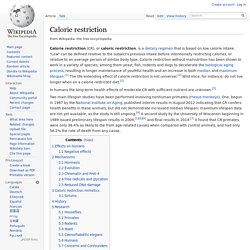

Mucuna pruriens. Mucuna pruriens is a tropical legume known as velvet bean and by other common names (see below), native to Africa and Asia and widely naturalized.[1] The plant is notorious for the extreme itchiness it produces on contact, particularly with the young foliage and the seed pods. It has value in agricultural and horticultural use and has a range of medicinal properties. Description[edit] The plant is an annual, climbing shrub with long vines that can reach over 15 m in length.
When the plant is young, it is almost completely covered with fuzzy hairs, but when older, it is almost completely free of hairs. The leaves are tripinnate, ovate, reverse ovate, rhombus-shaped or widely ovate. The flower heads take the form of axially arrayed panicles. M.pruriens bears white, lavender, or purple flowers. The dry weight of the seeds is 55 to 85 g/100 seeds.[4] Uses[edit] Mucuna pruriens seeds of two different colors Mucuna pruriens seed pod M. pruriens is a widespread fodder plant in the tropics.
Testofen® - Gencor. Testofen® is a fenugreek extract standardized for 50% Fenuside™.

Testofen is the branded name for Gencor’s fenugreek extract. Fenugreek is a well-known, versatile herb that contains over 100 phytochemical constituents, including Furostanol Saponins and Steroidal Saponins. While fenugreek has multiple health applications, Testofen has been shown to increase sexual desire, help maintain sexual health and muscle mass and support the immune system.* The group of saponin glycosides that Testofen is standardized to is named Fenuside. After age 30, most men begin to experience a natural and gradual decline in testosterone levels, which can result in reduced desire and a slow loss of muscle tone and definition.
Testofen has been shown to promote free testosterone, up to 98 percent, in an eight-week trial (see below) Incorporate Testofen in product formulations designed to support healthy sexual function and performance in adult males Animal study Citation: Urmila Aswar et.al, 2010.
Alkaline Ionized Water - Benefits Of Drinking Alkaline Ionized Water Is Well Known Part 3. Calorie restriction. In humans the long-term health effects of moderate CR with sufficient nutrient are unknown.[3] Two main lifespan studies have been performed involving nonhuman primates (rhesus monkeys).

One, begun in 1987 by the National Institute on Aging, published interim results in August 2012 indicating that CR confers health benefits in these animals, but did not demonstrate increased median lifespan; maximum lifespan data are not yet available, as the study is still ongoing.[4] A second study by the University of Wisconsin beginning in 1989 issued preliminary lifespan results in 2009,[1][5][6] and final results in 2014.[7] It found that CR primates were only 36.4% as likely to die from age-related causes when compared with control animals, and had only 56.2% the rate of death from any cause.
Effects on humans[edit] Negative effects[edit] Musculoskeletal losses[edit] Short-term studies in humans report loss of muscle mass and strength and reduced bone mineral density.[9] Low BMI, high mortality[edit] Unique water - Magnesium BiCarbonate.